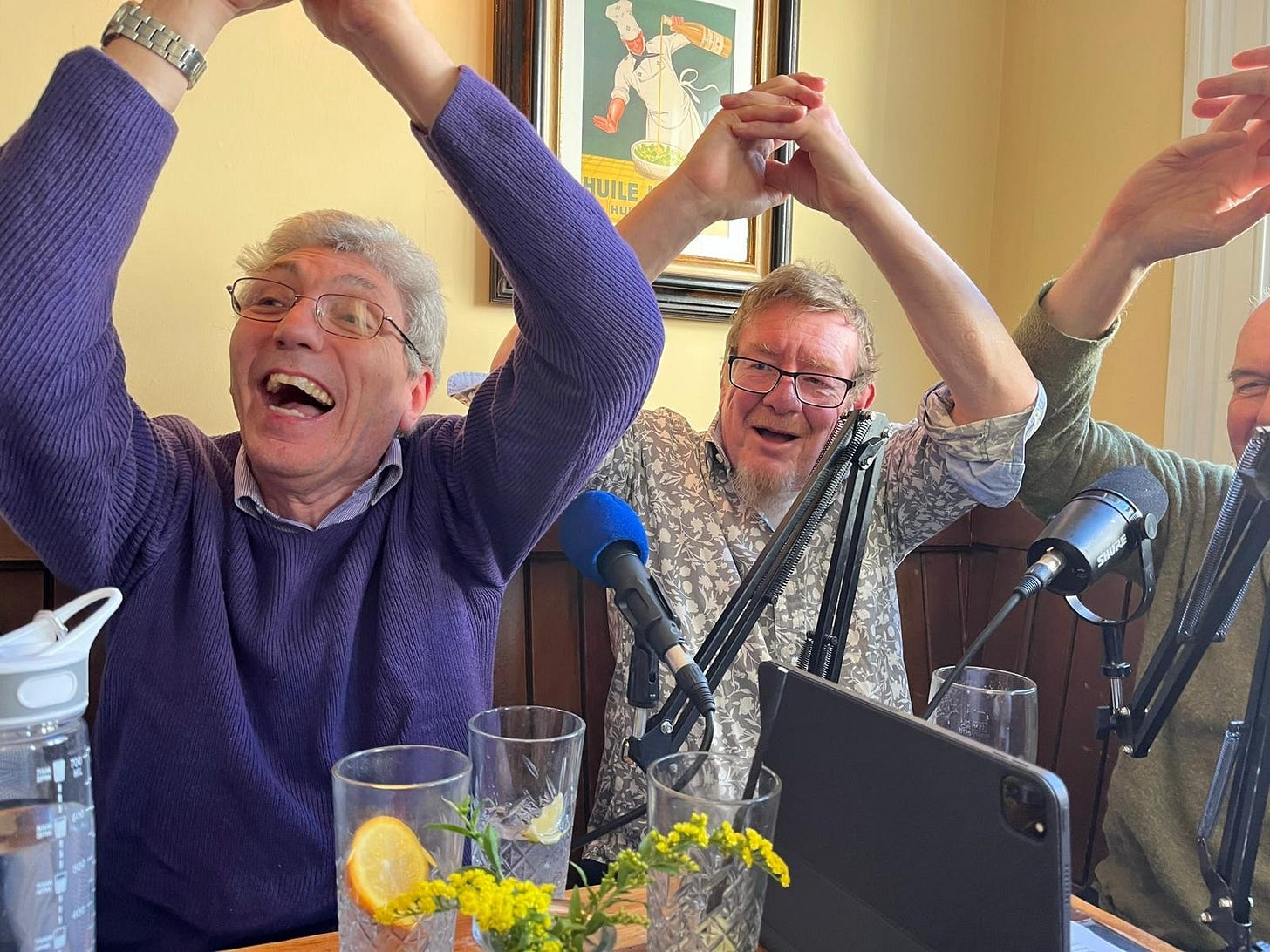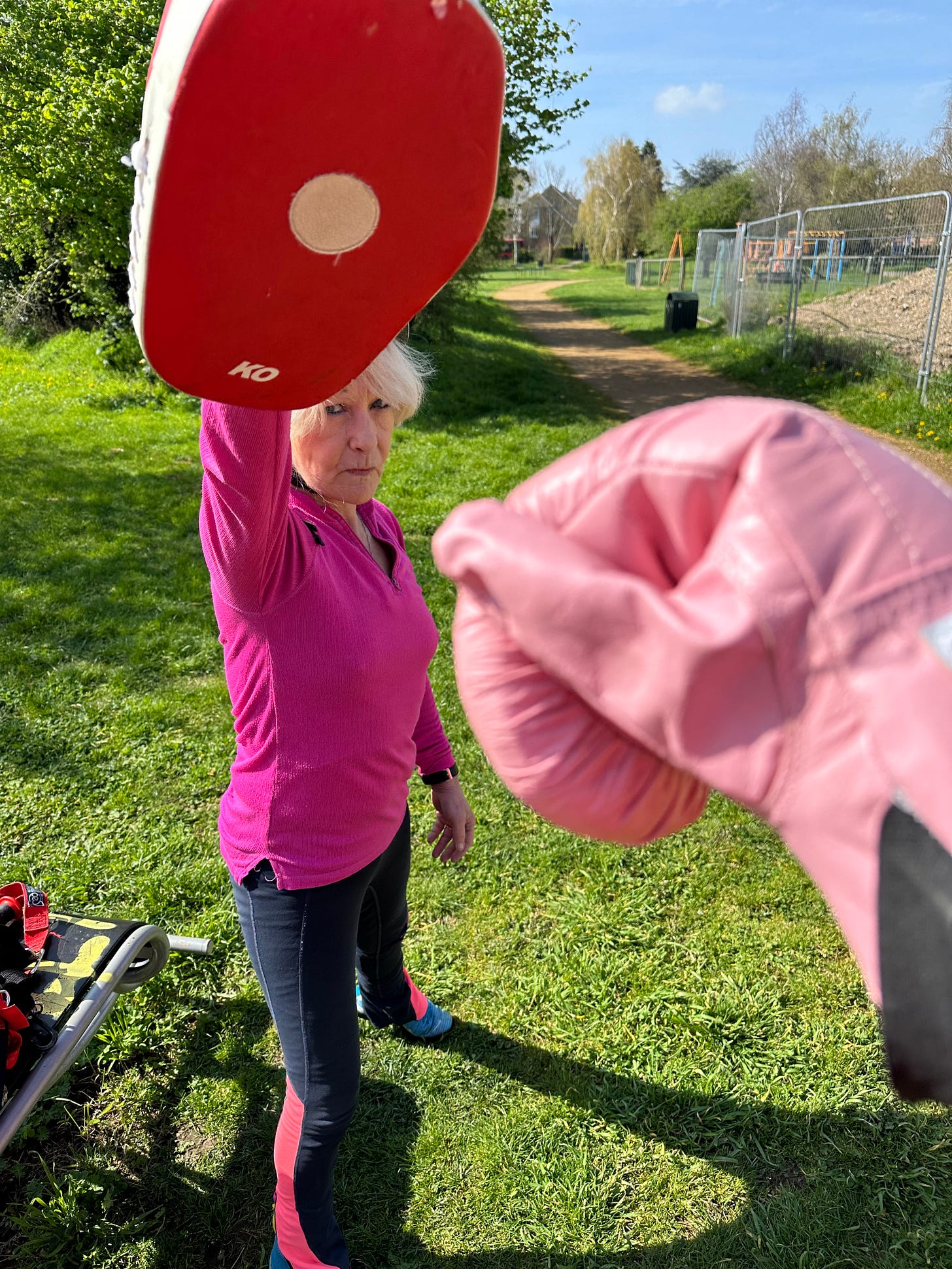This week’s edition of Movers and Shakers is all about exercise, the one treatment for Parkinson’s everybody seems to agree is effective. Out now on Apple Podcasts, Google Podcasts, Spotify and everywhere else that you get your in-ear entertainment. (By the way some people have somehow got the idea that you need to subscribe either to this newsletter or to Spotify to get the podcast - you don’t, it’s absolutely free.)
Our guest this week, Jerry Collier, is uniquely qualified to talk about this subject - he’s a consultant surgeon, he has Parkinson’s and he’s an absolute exercise fiend. Jerry explains why getting moving is so important:
“Exercise improves outcomes because it's one of the few things that induces neuroplasticity and reduces neuro degeneration,” he says, explaining that neuroplasticity is the creation of new synapses - new connections in the brain. He asks us to imagine that our Parkinson’s-addled brains are like a road system where accidents clogging up the motorways:
“What neuroplasticity is doing is forcing your brain to take the backroads that it wouldn't normally take. So it is opening up existing connections, which you're not using which are redundant. We all have a large amount of redundant tissue that we're not using. It's a question of utilising the tissue that works, rather than the tissue that doesn't.”
We learn some surprising things when we discuss our current exercise regimes. Judge Nick Mostyn appears to be rehearsing for the modern pentathlon, telling us he skis, plays golf, goes horseriding and works out in the gym at the Royal Courts of Justice.
Gillian Lacey-Solymar has also been skiing - a sport I’m giving up because I decided I could no longer turn effectively - and marvels at the fact that she can still get down the mountain when she often finds walking across a room a challenge: “I just can't walk but I put the skis on and I can ski.”
After first saying he has done nothing at all” Jeremy Paxman suddenly reveals he is seeing a personal trainer five times a week - to the dismay of Paul Mayhew-Archer who admits he has somehow missed his exercise and dance classes this week: “I forgot to do everything and I'm just feeling very guilty and miserable, and you're just making me feel worse.”
Mark Mardell says his problem is that he has always detested exercise but he is now trying out Tai Chi and boxing and hoping to find something that works for him.
My exercise regime is focused on the weekend. On Saturday I do a Pilates class and then have a piano lesson, which I count as exercise because it keeps the fingers of my now very weak right hand working. Then on Sunday I head to the towpath of the Grand Union Canal to meet Wendy, the trainer who has been working with me for many years, long before my Parkinson’s diagnosis. Her main technique is ritual humiliation, forcing me to wear pink boxing gloves and shouting “Muppet!” as I struggle to land a punch on her.
So what sort of exercise works for Jerry Collier? He recommends e-biking and an intensive course developed in Australia called PD Warrior - “boot camp for Parkinson’s .” It sounds horrific but he says it has been transformative:
“It's given me a level of fitness back that I haven't had probably for three to four years. It made me a lot better on the bike. And because I'm a lot fitter on the bike and doing more e-biking, I'm doing more exercise, which means I'm feeling much better.”
None of us - except perhaps the judge - looks that enthusiastic about taking up such a demanding exercise regime. But Jerry stresses that there is no one magic bullet for such a variable condition as Parkinson’s:
“What I'm saying is that some exercise will benefit everybody. But the exercise that benefits you is going to be tailored to your particular need.”
We end our conversation in the pub both convinced that we need to do more exercise and uncertain what form it should take. Large sums of money are now being spent in the hunt for new drugs to treat or even cure Parkinson’s and we welcome that, even if it seems a dreadfully slow and bureaucratic business. But maybe there should be more funding for research into the effects of exercise - one “medication” that is available here and now.





I'm a very new subscriber to your emails and podcasts, but I'm sure I'm here to stay. I found this podcast fascinating, educational, interesting, so good to hear the experts, but also good to hear the comments from the group, because they're the sort of comments that many people with Parkinson's have, me included. Your podcast was recommended to members of the excellent exercise group I belong to (similar to PD Warriors I think), and I'm so glad she did. Thank you for making this possible.
I listened very closely to episode on DBS as my late husband was a sufferer of Parkinson disease.
He was diagnosed age 60yrs and at age 70yrs he had brain surgery but it was on the Thalymus part of the brain and did not require a remote or electrodes in the head.
I would be interested to know why his was a different operation.
I wish this podcast had been available when he was alive. He passed away 18months ago with prostate cancer. It was a double whammy.